One of the best things that the Dallas Cowboys’ front office has done in recent years is get away from restructuring veteran contracts. But with big paydays due for star players in 2020 and in the coming years, could the constraints of the salary cap force Dallas back into this necessary evil?
To clarify, restructuring a contract is not the same as a player taking a pay cut. The player gets the exact same money, only now it comes in the form of a bonus rather than base salary.
Lowering the base salary helps reduce a player’s salary cap hit in that single year. But the cost for the team is that it increases the potential dead money in later years of the contract, making it harder to release players when their cap hits are potentially getting even larger.
Whether it’s “robbing to Peter to pay Paul” or “kicking the can down the road,” the idioms certainly apply. Contract restructuring isn’t something to be taken lightly; you could wind up with an even bigger problem in future years if you’re not careful.
The Cowboys went through this a few years ago. Restructuring Tony Romo’s contract at times is what caused $18 million in dead money to be split between Dallas’ 2017 and 2018 salary caps. Instead of going toward a strong free agent signing or two, those funds were locked up in a guy nbo longer on the roster.
We saw a shift in the team’s attitude toward restructuring with Dez Bryant. The Cowboys never touched his contract and preserved their ability to move on from Dez when needed. Even though it still resulted in $8 million of dead money in 2018, cutting Bryant might have been financially impossible if they’d restructured his deal previously.
So here we are in 2020 enjoying the benefits of this new anti-restructuring philosophy. As I wrote about a few weeks ago, the Cowboys have almost zero dead money against the cap right now.
However, could the challenges of re-signing Dak Prescott, Amari Cooper, and other key players now and in the future force Dallas to go back to it old ways?
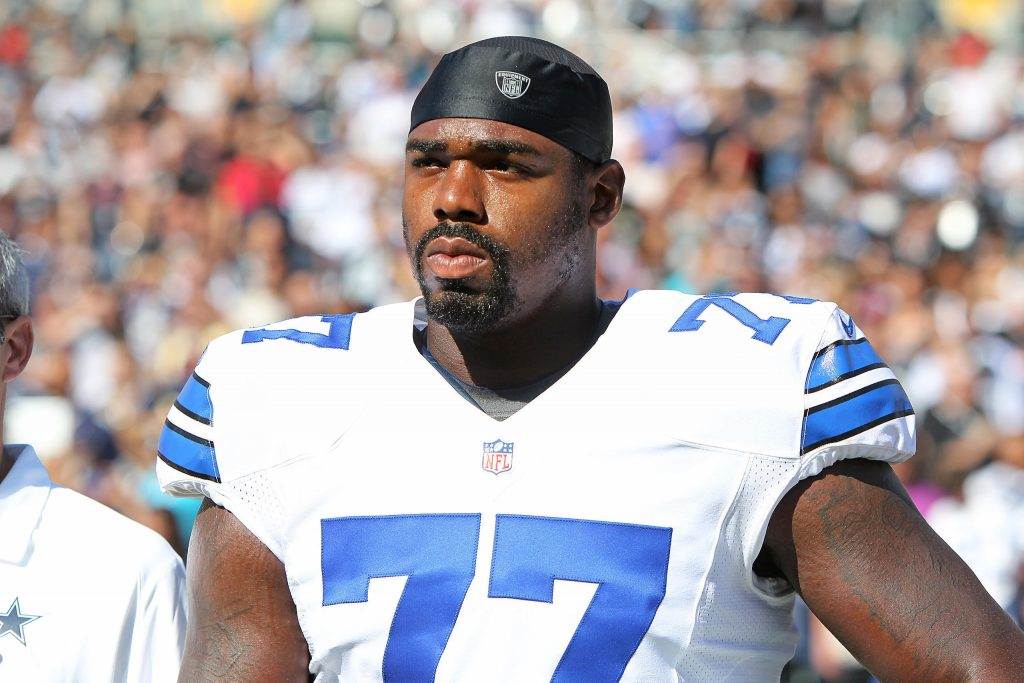
In an interview yesterday, Stephen Jones said that the Cowboys faced some tough times ahead with salary cap management. While some of that might be posturing during contract negotiations, it’s not an unreasonable projection given all of the young talent on the roster.
Even now, we’re looking at the prospect of Dallas allowing CB Byron Jones to walk in free agency. What if salary cap issues make it difficult to retain player like Michael Gallup, Leighton Vander Esch, and Xavier Woods in future seasons?
You can see why the Cowboys may be tempted to start restructuring some deals again, mortgaging the future by trying to win now.
The players that immediately come to my mind here are our star offensive linemen. Tyron Smith, Travis Frederick, and Zack Martin all have received their big paydays and still have significant wiggle room on the back ends of their contracts.
Let’s look at Tyron specifically. Here are the remaining years of his contract with their current cap hits, base salaries, and dead money:
- 2020: $10M base, $13.5 cap hit, $5.3 dead (if released)
- 2021: $10.5 base, $12.2 cap hit, $1.7 dead (if released)
- 2022: $13.5 base, $13.5 cap hit, $0 dead (if released)
- 2023: $13.6 base, $13.6 cap hit, $0 (if released)
You see where the Cowboys might get enticed? They have the potential to create some major space in these seasons by converting Smith’s base salaries.
The cost, though, would be losing flexibility in the later years. And while we’d like to think that Tyron Smith will still be an elite left tackle for the next four seasons, there are some red flags against that hope.
For one, Tyron turns 30 this December. And when you consider that he’s been a full-time starter since entering the league in 2011, he’s already had almost a decade of wear and tear.
What’s more, Smith hasn’t played a full 16 games since 2015. Between back, neck, and shoulder issues, Tyron has some chronic ailments which don’t seem to be going away. Now that he’s crossing over into his 30s, how much worse could they become?
If the Cowboys start restructuring Smith’s contract now, that dead money in the future years is going to increase. And if that happens at the same time that Tyron starts really breaking down as a player, then suddenly he could become an albatross around the Cowboys’ financial fluidity.
Smith is the glaring example because of his recent history and the position he plays. But Travis Frederick and Zack Martin are similar in age and contract structure, though with slightly less NFL mileage.
Ideally, the Cowboys will find ways to handle all of their roster business without getting back into the restructuring game. It’s dangerous and, while providing short-term relief, can lead to even greater long-term problems.
But whether it’s our All-Pro offensive linemen or some other star players, such as Ezekiel Elliott, the temptation of restructuring will remain out there. Hopefully, Dallas will remember the pains of the past and avoid it as much as possible.
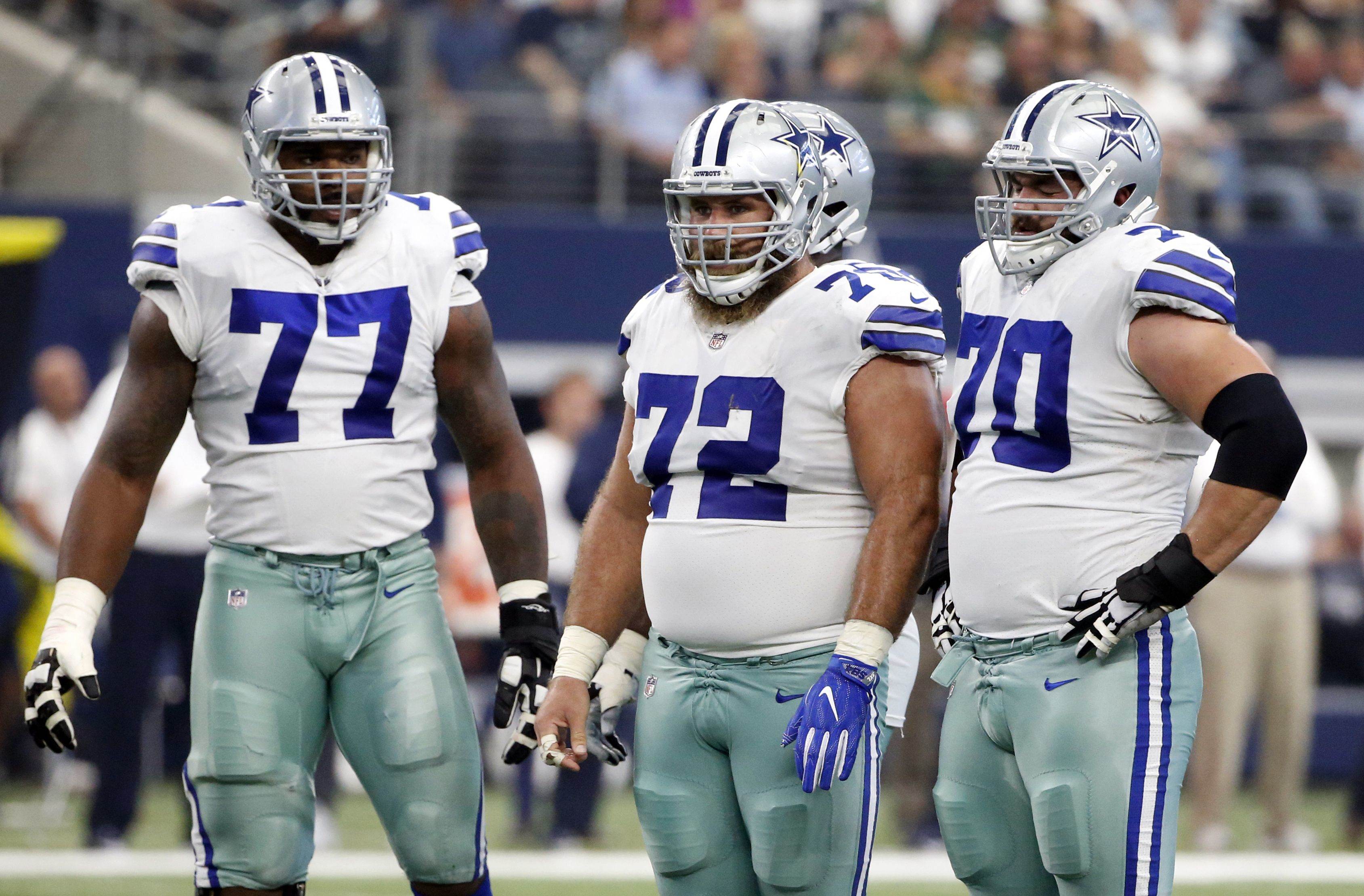



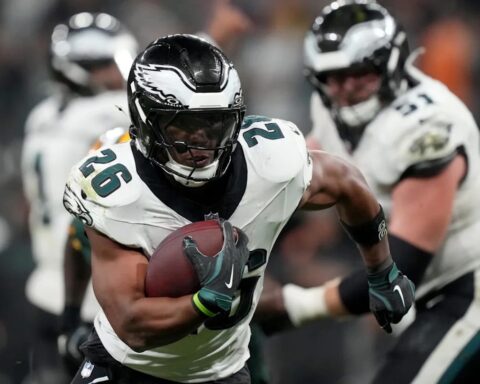

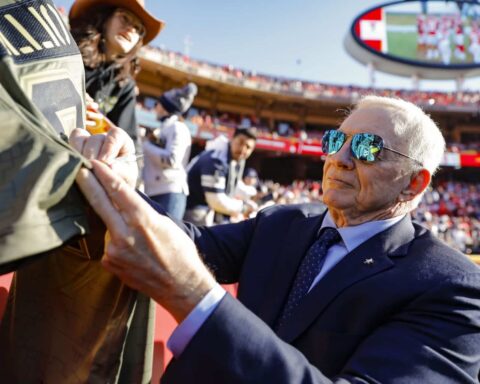


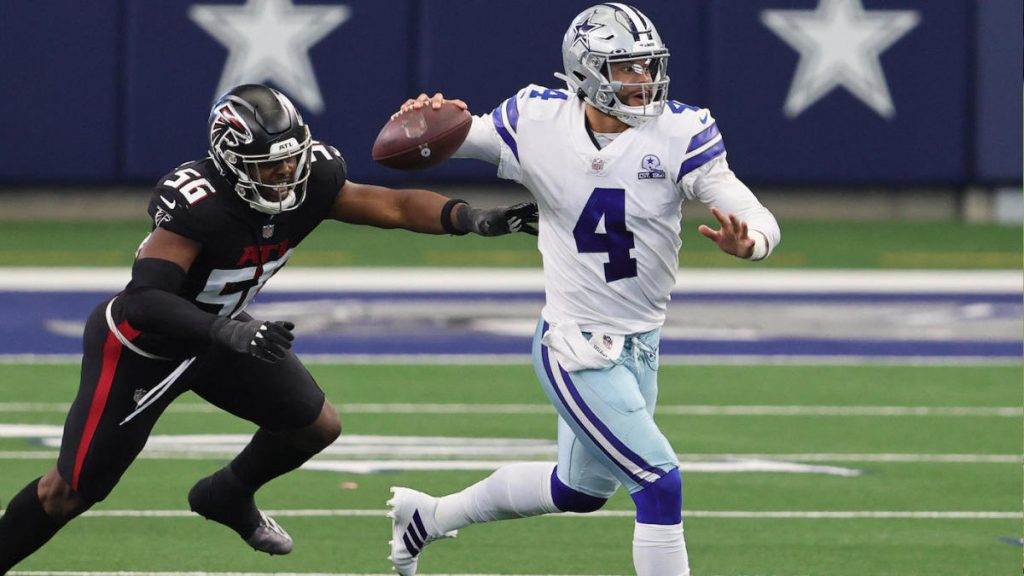
This is why I advocate trading our OL (where we’ve invested cap most heavily) to “sell high” on players we “already know” will not want to pay in the future…
why wait to eventually cut or watch walk in free-agency???
Players and their agents are not stupid.
Recently, JJ have been striking out convincing players to enter the octagon without backup.
By the time JJ and family is done “guilt-tripping” players during negotiations… they’re left with pie on their face and no real “contingency plan”. Treating players as stocks/commodities ain’t getting us to the big dance.
Unless, you’re willing to trade them. (See New England)